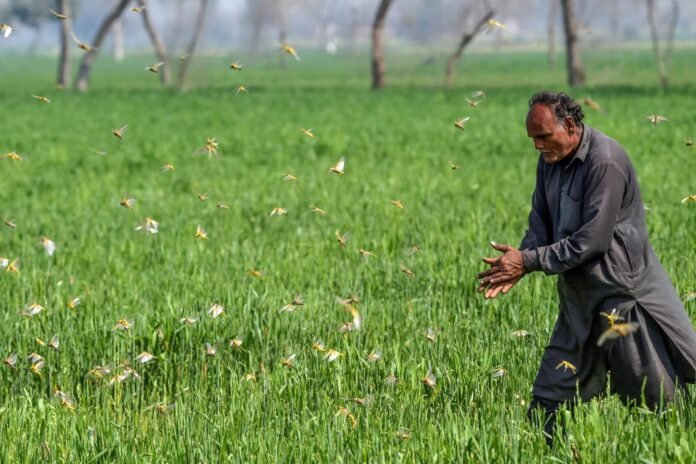This season, the total demonstrative area of maize-soybean strip intercropping technology in Pakistan has surged to over 400 acres, about 2.67 times that of last autumn. Besides, more types of crops are being included in the intercropping system including wheat-soybean and sugarcane-soybean intercropping.
A group of Pakistani agricultural scientists at the National Research Centre of Intercropping (NRCI), Islamia University is researching strip intercropping technologies with the hope to help their country shrink the import bill of food commodities, especially soybean, which already is a huge burden on Pakistan’s economy.
Now, harvesting is going on in the demonstration plots, which is expected to achieve promising results soon.
“Last season, more than 200 farmers have used our technology, and the number is still rising day by day. Farmers are quite satisfied with the results. They are contacting us and want to adopt the technology on more land,”
Dr. Muhammad Ali Raza, Director of the National Research Center for Intercropping, IUB, and post-doc of Sichuan Agricultural University (SAU) told CEN.
After years of hard work, he has become a productive agronomist and expert in intercropping research in Pakistan. Under the vision of the IUB Vice Chancellor Prof. Athar Mahboob, the National Research Centre of Intercropping was inaugurated on August 11, 2021, to introduce strip intercropping technologies in Pakistan’s agriculture to improve crop yields and soil productivity. Now, Dr. Muhammad Ali Raza acts as the director of the center, leading intercropping technology’s popularisation in Pakistan.
The center has already developed and optimized the Chinese maize-soybean strip intercropping technology according to local conditions and conducted trials on the wheat-soybean strip intercropping.
Moreover, to further enhance resource use efficiency and land productivity from the sugar belt of Pakistan, the center is working on developing sugarcane-based intercropping systems. Recently, the center conducted trials of sugarcane- and wheat-based strip intercropping systems including rapeseed, soybean, clover, and chickpea as secondary crops, with developing the intercropping-specific varieties of these crops.
The center is also conducting research on the different row configurations, particularly the wider strips, with an objective to encourage the mechanization of strip intercropping systems with existing farm machinery in Pakistan.
Following the slogan of ‘Think Globally, Act Locally’, Sino-Pak cooperation is a special feature of NRCI. Particularly, the support of China in agricultural education and training would surely boost agricultural productivity in Pakistan, which will not only stabilize the economic condition of the country but also provide a nearby and cheaper food source to China that could reduce food security pressure on China.
Maize-soybean strip intercropping technology was introduced from Sichuan Agricultural University, China to Pakistan in 2018. This advanced Chinese technology makes better use of available space to increase the number of crops that can be harvested on the same area of land as soybean production is like an added ‘bonus’, which has been helping Pakistan ease soybean shortage and cut down soybean imports since four years ago.
Most significantly, this season, a new intercropping-specific soybean line has been developed by Dr. Muhammad Ali Raza and Dr. Zaheer Ahmed, in charge Soybean Lab at the University of Agriculture, Faisalabad (UAF). It is learned that the new soybean line can quickly produce soybeans of 480 to 720 kg per acre in the intercropping system. In comparison, the production of other soybean varieties only stagnates from 200 to 400 kg per acre.
“This season we planted a new soybean line with intercropping technology and harvested the plants. We’re happy seeing this soybean line full of pods,”
Dr. Muhammad Ali Raza said with confidence.
Read More:





 Nothing Phone 2 Is Coming With Qualcomm’s Snapdragon 8 Chip
Nothing Phone 2 Is Coming With Qualcomm’s Snapdragon 8 Chip